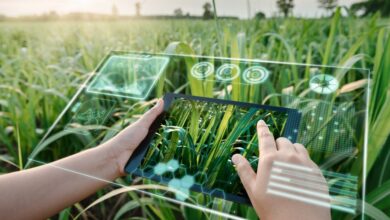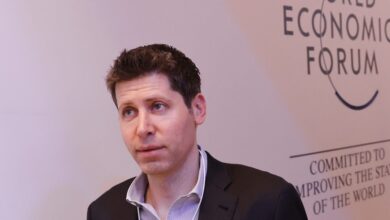Closing Africa’s Digital Gender Divide: Empowering Women for Economic Growth and Resilience

During her recent trip to Ghana, Tanzania, and Zambia, Vice President Kamala Harris announced a significant investment of over $1 billion to bridge Africa’s digital divide, with a particular focus on expanding access to girls and women. This ambitious initiative not only aims to create opportunities for millions but also holds far-reaching implications for health, economic growth, stability, and resilience in a region of increasing strategic importance.
Addressing the Gender Gap in Digital Access
In today’s economy, it is crucial to improve women’s access to digital technologies and skills to ensure their full participation and contribution. Currently, only one in three African women uses the internet, while almost half of men have access. Furthermore, women on the continent are 30% less likely to own a smartphone than men. This lack of access not only hinders women’s entrepreneurship but also deprives society of their talents and innovations.
Real-Life Impact: Empowering Women through Connectivity
The internet has proven to be a catalyst for transformative change. For example, Fafape Ama Etsa Foe, popularly known as the “Mushroom Queen,” established E90 Ghana, a sustainable farm in Accra that utilizes sawdust to grow mushrooms. Through the internet, Ms. Foe was able to research farming techniques, overcome challenges, and identify opportunities. Today, digital tools like WhatsApp and Telegram allow her to connect with clients, streamline operations, and reduce post-harvest losses. Ms. Foe believes that bridging the digital gender gap will empower women to market their products and drive innovative solutions.
Unlocking Economic Potential and Strengthening Communities
Closing the digital gender divide not only benefits individuals but also has a positive impact on families, communities, and society as a whole. Investments in internet infrastructure have a direct correlation with overall economic growth. The World Bank estimates that expanding broadband penetration by 10% in low- and middle-income economies can increase real per capita GDP by 1.4%. Moreover, the exclusion of women from the digital economy has already cost low- and middle-income countries $1 trillion in GDP over the past decade, with projections indicating this cost could rise to $1.5 trillion by 2025.
Case Study: Whispa Health
Whispa Health, a Nigeria-based app founded by Morenike Fajemisin, is another example of the transformative power of reliable internet access. The app provides users, especially women and young people, with vital information on sexual and reproductive health, access to healthcare providers, and the ability to purchase contraceptives and other health products. By leveraging the internet, Whispa Health offers confidential and shame-free healthcare, enabling young women to prioritize their health, stay in school, and pursue their dreams.
Empowering Women for Global Challenges
Empowering women entrepreneurs like Fafape Ama Etsa Foe and Morenike Fajemisin is critical for addressing some of the most pressing global challenges, including climate change, pandemic surveillance, and democratic backsliding. By closing the digital gender divide, Africa can unlock the innovation potential of millions of women and girls, granting them access to knowledge, quality education, and healthcare. This, in turn, will drive economic development, build resilient communities, and strengthen democracies.
Inspiring Future Generations
When girls witness successful women from similar backgrounds or nationalities, they recognize that success is within their reach. As civil rights activist Marian Wright Edelman famously said, “You can’t be what you don’t see.” By investing in Africa’s digital infrastructure and promoting gender equality, the Global North can contribute to a brighter future for all.
Conclusion
The initiative to close Africa’s digital gender divide and empower women represents a crucial step toward achieving economic growth, resilience, and gender equality. The $1 billion investment announced by Vice President Kamala Harris sets the stage for increased connectivity, access to information, and innovative opportunities for millions of women and girls in Africa. As business and philanthropic leaders join this global effort, the benefits will extend far beyond individuals, transforming communities, and fostering a more inclusive and prosperous future for all.





